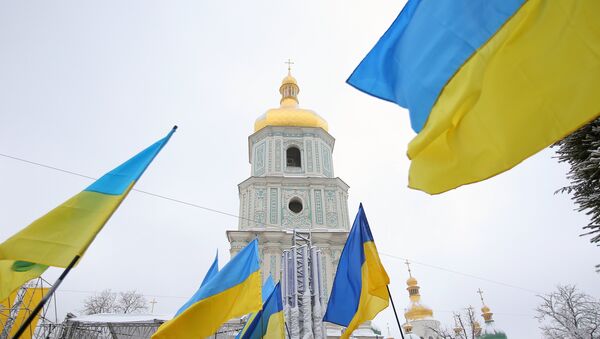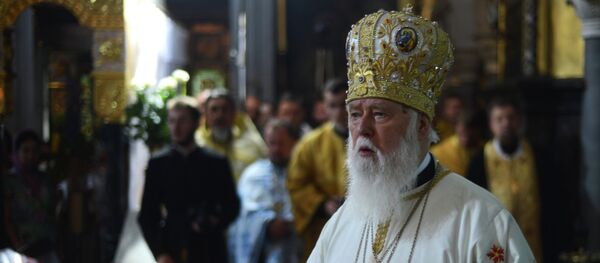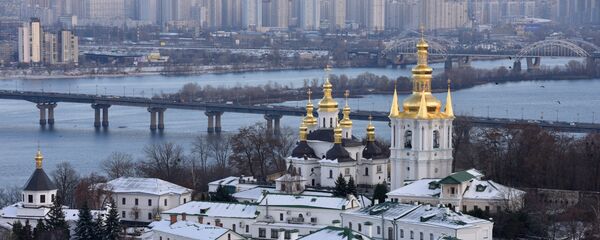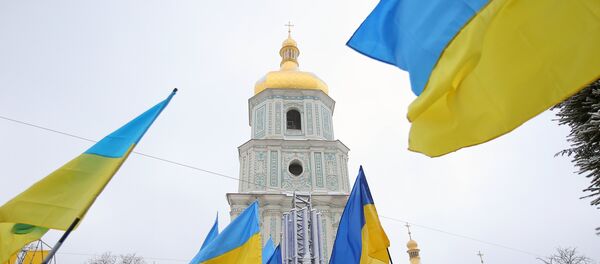Following a morning prayer at St. George's Cathedral, Bartholomew gave the tomos and a crosier to Epiphany Dumenko, who was elected head of Ukraine's new autocephalous church during the "unification council" in Kiev in December.
The ceremony was attended by Ukrainian President Petro Poroshenko with his spouse, Chairman of the Ukrainian Verkhovna Rada Andriy Parubiy, Ukrainian Minister of Economic Development and Trade Stepan Kubiv and others.
On 5 January, Constantinople Patriarch Bartholomew signed the tomos granting autocephaly to the newly established Ukrainian church.
READ MORE: Constantinople Patriarch Signs Tomos For Ukraine's New Church — Reports
In April, Ukrainian President Petro Poroshenko said that Ukraine was very close to creating its own local autocephalous church. According to the president, non-canonical Ukrainian Orthodox Church of the Kiev Patriarchate sent an appeal to Ecumenical Patriarch Bartholomew to create a single local autocephalous Orthodox church in Ukraine.
Later in April, Poroshenko said that Ecumenical Patriarchate of Constantinople was launching procedures required to establish the Autocephalous Church in Ukraine.
READ MORE: Russian Patriarch Urges Constantinople to Stop Partaking in Schism in Ukraine
In July, representatives of a delegation of the Ecumenical Patriarchate of Constantinople announced during a meeting with Poroshenko in Kiev the launch of the first stage of procedures required to establish Ukraine's "new church," which were to be recognized by the Holy Synod.
The synod announced that it lifted the anathema from the heads of the two non-canonical churches that had been excommunicated by the Russian Orthodox Church for their schism. The Constantinople Patriarchate also revoked its decision to grant Moscow Patriarchate the right to ordain the Metropolitan of Kiev, which dates back to 1686.
READ MORE: Ukraine's 'New Church' Head Speaks of US Support in Talk With Russian Prankster
On October 8, the Holy Synod of the Russian Orthodox Church decided to completely "break the Eucharistic communion" with the Patriarchate of Constantinople. The Russian Orthodox Church called the synod's decision the "legalization of schism," saying that it would have catastrophic consequences and would affect millions of Christians in Ukraine and other countries. The Moscow-affiliated Ukrainian Orthodox Church said that the synod’s decision was a hostile act, interfering with the Ukrainian church's affairs, and threatened the Constantinople patriarch with anathema.
On December 20, the Ukrainian parliament passed a bill requiring the UOC-MP to add the word "Russian" to its name in order to reflect its ties to the country. Poroshenko signed the bill into a law two days later. With the law in force, the UOC-MP has four months to change its name, but the church said it planned to challenge the legislation in the Constitutional Court.
MORE DETAILS TO FOLLOW





